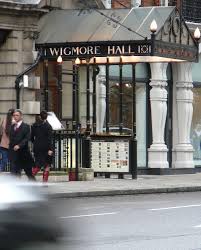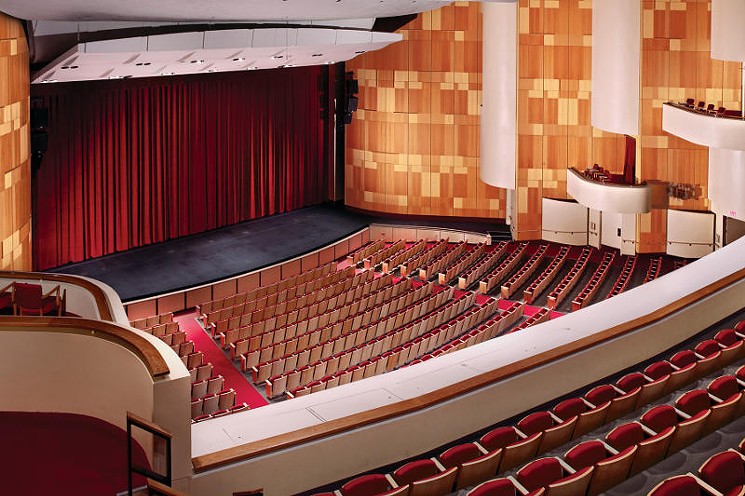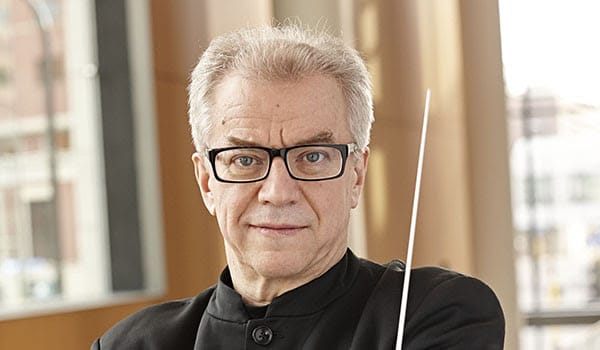From an interview with the Italian agency ANSA:
Does it make sense for you to talk about retirement? “Sure, but with a lot of serenity. The time will come to retire from the stage, because being on stage involves a great physical and mental commitment as well as vocal. I thought I’d end my career playing the baritone role of Boccanegra in 2009 but instead of the end it was a new beginning. “Finally, the sexual harassment scandal.” The official results are available to everyone. If my behavior offended someone, I apologized from day one, but my conscience is serene because I have not abused anyone and internal investigations have confirmed it “.

John Gilhooly has announced a rich new season at London’s premier chamber music venue, 100 concerts between now and Christmas, which is more than any other concert hall in the UK (or almost anywhere else for that matter).
Gilhooly said: ‘Concerts will go ahead with or without an audience and the schedule is subject to change given the uncertainty of travel and the possibility of local and international lockdowns and quarantine problems. We are already planning for the spring, and many local artists included in the spring series are on standby to bring their concerts forward, should we need them for last-minute replacements this autumn.
‘This is not an easy time for the Hall or for live performing arts, and this has been a very difficult project to put together, logistically, and financially. We remain grateful to ACE and to the generosity of individual donors and sponsors who are helping to underpin significant costs around running the Hall at this challenging time. Nobody should be under any illusion about how finely balanced things are for the Hall for the foreseeable future. However, we are determined to get artists working again, and to pay them their full fees through this series. Please be generous if you are watching online, to help us fulfil the pledge to put money in artists’ pockets, many of whom have not worked since March, including artists at every stage of their career.’
Artists include Christian Gerhaher, Alban Gerhardt, Leonidas Kavakos, Sarah Connolly, Igor Levit…. and a certain Norman Lebrecht, making his Wigmore Hall debut.

Press release:
(SF, 17 August 2020) 28 commemorative stones for victims of the Nazi dictatorship were laid today on Max-Reinhardt-Platz, outside the Haus für Mozart. The Salzburg Festival’s centenary offers an occasion to commemorate those exiled and murdered artists who shaped the Festival decisively in the almost 20 years between its founding at the annexation of Austria in 1938. Therefore, the Salzburg Festival gratefully adopted the suggestion of the Stolpersteine Committee and the Jewish Congregation to place 28 “Stolpersteine” (literally, “stumbling stones”) in a prominent position on Max-Reinhardt-Platz, in front of the Haus für Mozart. The Association of Friends of the Salzburg Festival is also covering the costs of the 28 stones.

Here are the names.
The Phoenix Symphony has called off its entire 20-21 season – no chamber concerts, nothing online. No hope of any music before September 2021.
“Forgoing these performances is disappointing to our musicians, staff, board of directors and loyal patrons and friends, president and CEO Suzanne Wilson said in a press release. “However, this cancellation represents the safest and most prudent plan to ensure the well-being of the entire Symphony community.
“As stewards of this historic and beloved institution, our mission and responsibility centers on preserving our future and reuniting in Symphony Hall to celebrate our 75th Anniversary in the fall of 2021.”

The scientific institute, which has permitted reduced distances within orchestras, is appalled at media reports that it forsees concerts taking places with full halls.
The scientists say this is a total misrepresentation of their studies.
Charité Board of Directors distances itself from recommendations on full concert halls
The Berlin Charité management has distanced itself from a recommendation by two of its institutes, according to which a operations with full audience in concert halls and opera houses is declared feasible.
The Charité Board of Directors stated on Twitter that the paper on the resumption of opera and concert operations under corona conditions had not been agreed internally and did not reflect the position of the board. The draft does not take into account the current dynamics of the infection process and the associated risks. The paper should therefore not be regarded as a proposal for action, but as the basis for further critical discussion within the framework of the Berlin test strategy.
Obligation to wear masks throughout, ventilation and no catering
The recommendations of the Institute for Social Medicine and Epidemiology and for Hygiene and Environmental Medicine state that full public access is possible if, for example, masks are worn the whole time. In foyers, at the box office, cloakrooms and in sanitary areas, the rules of social distancing should be observed, the recommendations state. The direction of audience flow should be ensured by routing specific paths. At classical music events, no conversations are held during the concerts anyway, and flows of movement and crowds are generally easy to control. In case of symptoms of a possible infection, prospective audience members should refrain from visiting. Contact details should also be provided. Admission and ticket controls should be contactless. Adequate ventilation must be ensured, and the sale of food and beverages must be avoided.
Senator for Culture Klaus Lederer is surprised
In an interview with the rbb Abendschau, Senator for Culture Klaus Lederer was also surprised by the statement: “None of the experts has ever argued that full concert halls with a few hygiene measures are unproblematic. In this respect, we are surprised by this recommendation from the Charité, which we learned about through press inquiries. We are particularly surprised that their co-authors include experts with whom we have already worked,” said Lederer.
German Music Council: Too good to be true
Christian Höppner, Secretary General of the German Music Council, announced on the Council’s website the paper by the Charité Institutes: The report about a voice of hope was at the same time very surprising. The statement on the public operation seems “too good to be true – and, when viewed rationally, raises a number of questions,” it continues.

Anyone remember Edith Vogel? She was one of a clutch of Solti compatriots who taught two generations of Londoners how to play piano by proper principles.
Edith died, aged 80, in 1992.
Andrew Bottrill, professor of piano at the Guildhall School of Music and Drama, has published this lovely reminiscence.

We hear that Hanako Yamaguchi has resigned after 30 years in programming at Lincoln Center, mostly spent in harmony with the departed Jane Moss. Yamaguchi was effectively head of music at the venue.
Her departure leaves just Henry Timms in the centre’s programming department.
This has wider implications. Arts centres like Lincoln and London’s South Bank are loking worn and out of tune with the times. Both face restructuring before Covid is over. The programming function, never their strongest card, needs to be rethought from the roots up.

The Seoul Philharmonic has cancelled several concerts after one musician tested positive with Covid-19.
It is understood the musicians had been teaching a high-school student who was part of a recent church cluster of cases.
The orchestra immediately called off its weekend concerts and shut its offices for sanitisation.
Next weekend’s concerts may also have to go, which is a shame for music director Osmo Vanska, who has just emerged from two weeks’ enforced quarantine on arrival.









